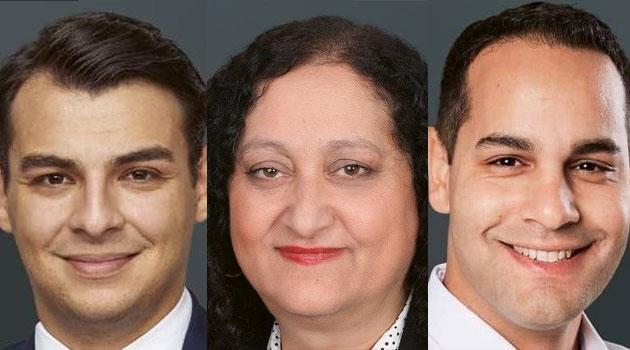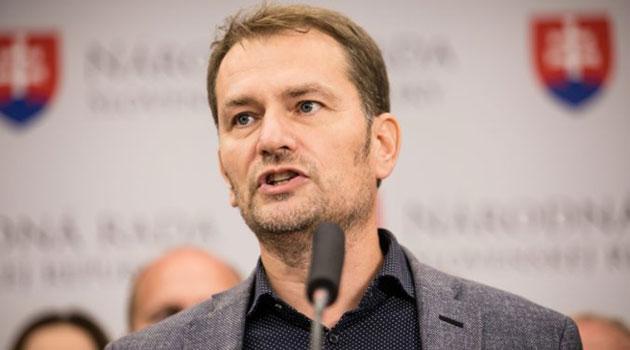Analysis: Slovak elections a Pyrrhic victory despite number of Roma elected

After the outcome of last weekend’s parliamentary elections in Slovakia was published, many Romani people and their friends were euphoric over the historic result of three Romani candidates being elected to the national legislature – one woman and two men running for the victorious OĽaNO movement. This actually is one of the biggest successes for Romani candidates in the EU – the only country more successful in this regard has been Spain, where four Romani candidates made it into the previous national legislature and currently three are seated there, although importantly, unlike Slovakia, the Romani parliamentarians in Spain have been elected for different political parties. The success is great as far as the number of Romani people is concerned, at least. When we consider the outcomes more deeply, however, this can be considered a Pyrrhic victory.
The Slovaks have now weaned themselves off of the corrupted regime of Robert Fico and have also temporarily halted the growth in support for the People’s Party “Our Slovakia” (ĽSNS). However, at the same time they have elected their historically most conservative legislature ever, one in which representatives of several political movements will be seated alongside the neo-Nazis in Kotleba’s ĽSNS and from whom we cannot anticipate any empathy for the needs of Romani people.
The xenophobic “We Are the Family” is a partner of the ultra-right Lega in Italy
Third place, after OĽaNO and the SMER party of the three-time PM Fico, now belongs to the xenophobic “We Are the Family” (“Jsme rodina”) movement, which aims to “protect the family in Slovakia against threats from without and within”. That movement is a partner of the Italian ultra-right Lega party, whose leader, Matteo Salvini, first became famous, sadly, as Interior Minister for his policy aimed against Romani camps and for the organizing of big anti-Roma demonstrations. In Slovakia, “We Are the Family” has not presented a more detailed program about the integration of Romani people (they just propose introducing support for entrepreneurs who seasonally employ Romani people in agriculture) or for combating racism, but their leading representative and failed presidential candidate Milan Krajniak is a self-declared “expert in fighting Romani crime”.
Despite the concerns of experts over the approach taken by the neo-liberal “Freedom and Solidarity” (SaS) party, which during its previous time in government was unable to implement several experiments (due to the fall of the Radičová government), such as restricting social welfare to “one hot meal a day”, their current program contains an entire chapter dedicated to solving the problems of the Romani settlements. The party has offered the most detailed measures, a 40-page plan for including communities of the most marginalized Roma, concentrating on supporting their activation, education and employment, but the plan does not address the structural barriers on the side of the majority, such as discrimination or racism. Given their focus on the economy and their minority position should they choose to join a future government, it cannot be anticipated that they would concentrate on advocating for the agenda of including Romani people while also combating the racism that Romani people face.
From a mayoralty to a ministry?
“For the People”, the party of the former President of Slovakia, Andrej Kiska, which has ended up as the smallest party in the new national legislature, ran Vladimír Ledecký as a candidate, the former mayor of the municipality of Spišský Hrhov, which is considered one of the most successful in the integration of Romani people in Slovakia. Should that party join the government, Ledecký is being considered as a possible Labor Minister, but even should he be given a different position, he will be able to contribute his experience and perspective on local-level needs to central-level decision making.
Zuzana Kumanová, a candidate who is an historian and a Romani community member who has dedicated herself to the history of Romani people and to commemorating Romani victims of the Holocaust, was not elected. From the standpoint of the interests of the Romani community the participation of Marie Kolíková, who might become Justice Minister, is also important, as for years she has dedicated herself to the subjects of access to justice by groups who are vulnerable and non-discrimination – in the past she established a network of centers for legal aid at the regional-level courts and reformed the personal bankruptcy laws to create a way for people to exit the debt trap.
OĽaNO gave Roma a lot of room, but the party’s relationship to their inclusion is unclear
What about the winner of the election, OĽaNO? From the perspective of a Czech reader, this party is difficulty to comprehend because it does not exist as a factual matter. Until recently the party had just four members and no party structures – how decision-making functions inside the party is not known in terms of its mechanisms, which have yet to be made public, and it is assumed that they consist mainly of decisions by the leader, Igor Matovič. The relationship of the party to the inclusion of Roma is unclear, despite the fact that it gave Romani candidates a lot of room on its list. That could be due to the leader’s brilliant political instinct after he picked up on and responded to the unprecedented mobilization in politics of Romani people in Slovakia that is associated, presumably, with their fear that the neo-Nazis and fascists were growing stronger.
Matovič, at the same time, is a friend of Slovak MEP Peter Pollák, the Romani politician who, during the Fico government, served as the Slovak Government Plenipotentiary for the Romani Community and whose time in office received mixed reviews – on the one hand he pushed through a law conditioning access to basic welfare benefits on forced labor, while on the other hand he did begin to address the decades-neglected question of coming to terms with the ownership of the land beneath the Romani settlements in Slovakia that are segregated. After Matovič was elected to the European Parliament, he gave up his candidacy and handed it over to Pollák, who became the first Romani MEP from Slovakia last year as a result.
During the elections this past Saturday, the 28-year-old son of Pollák, who shares his name and whose expertise and work experience are not known to the public, became a Slovak MP. In addition to Pollák, Jr, two other Romani candidates made it into the legislature for OĽaNO: The educator Jan Herák, who has long concentrated on issues related to at-risk youth and children’s homes, and the renowned Romani activist and journalist Jarmila Vaňová.
Given that OĽaNO has always been a virtual party of independent candidates, it is not at all certain what policy will be pushed for in relation to Romani people and their inclusion in the government it will lead. Their election program contains 17 points that are rather unspecific about supporting education, restricting social welfare, and prosecuting hate speech. However, It is not clear whether those points will make it into the future government’s program or whether the leader will push through something else.
Who will determine policy with respect to Romani people?
The new governing party has no structures, nor does it have a clear democratic mechanism for decisions within the party, and instead is experimenting with different forms of direct democracy, such as Facebook polls or the recently-announced opportunity for “national consultations” that Hungarian Prime Minister Orbán has been exploiting. It is, therefore, possible that government policy will be determined with respect to Romani people by means of opinion polls, which would not be favorable for the Roma in Slovakia, or through different political formations in the new national legislature, or through a future governing coalition, or even by the OĽaNO party on its own.
Almost half of the MPs elected for OĽaNO are adherents of Christian, conservative, extreme movements who will do their best to push through their cultural and ethical priorities, among which we can anticipate the limiting of the rights of women – some of them had already proposed, during the last legislature, banning abortion and artificial conception by introducing prison sentences of between five and 12 years for such procedures – or weakening minority protections and the fight against discrimination and racism, all of which are perceived by these MPs as part of a “dangerous” liberal agenda.
Romani candidate Irena Biháriová not elected despite high preferential votes
Liberal values, including, for example, establishing a Human Rights Ministry or combating the racism experienced by Romani people in a systematic way have mainly been advocated by the now failed coalition of Progressive Slovakia and Spolu (“Together”), who lost the opportunity to be seated in the national legislature by fewer than 900 votes. Fourth place on their candidate list was held by the famous Romani lawyer and anti-extremism fighter Irena Biháriová, who has now become the most popular Romani candidate in Slovak history with almost 47 000 preferential votes, the 31st-largest vote haul nationally – but due to the higher threshold for coalitions, she did not make it into the legislature.
It is not necessary to write anything about the attitude taken by Kotleba’s neo-Nazi supporters or that of the former governing SMER party toward Romani people. Through the ĽSNS, a group of convicted criminals and racist thugs have made it into the legislature. Fico’s SMER party will go down in history as responsible for brutal police interventions against the inhabitants of the Romani settlements, for using racist language, and for openly admitting that it took no interest in the problem of including Roma or building coexistence between non-Roma and Roma – on the contrary, the party repeatedly demonstrated that it was glad to feed off of the hatred of Romani people at any time.
From the perspective of the representation of Romani people in the new legislature, therefore, the Slovak election could be perceived as a success at first glance, but a more detailed analysis of the outcome sparks concerns. For any minority whose interests and rights are endangered, progressive political streams of thought are generally more favorable. Representatives of that stream, however, did not make it into the legislature. In the best case, the new Slovak government will support the development of the long-neglected regions in which most Romani people live – and they can profit from that support as well. In the worst case, the discourse focusing on “order” and restricting minority rights, including those of Romani people, will be strengthened. In any case, we cannot count on the new government in Slovakia to place combating discrimination and racism at the center of attention, which are the problems that most Romani people in Slovakia face – and without solving those problems, no inclusion policy can succeed.
The author, Marek Hojsík, is the manager of Central European University’s Roma Civil Monitor project.
